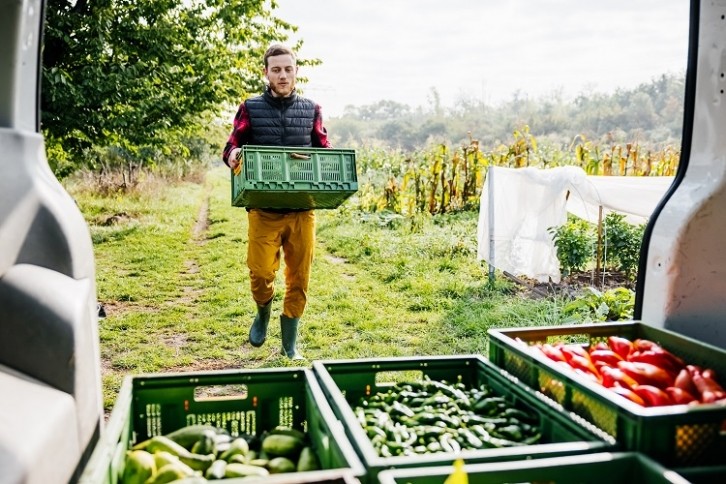The organisations raised their issues by sending a letter to the Proper Honourable Steve Barclay MP, Secretary of State for Setting, Meals and Rural Affairs within the UK Authorities.
Their letter outlined a variety of criticisms of newly launched eco-labelling tips from meals sector group Institute of Grocery Distribution (IGD), saying they mislead customers, are too closely weighted in the direction of a concentrate on carbon whereas not paying sufficient consideration to biodiversity, soil and water well being, and animal welfare, and will result in unintended environmental outcomes.
The aim of the rules
IGD’s tips have two predominant objectives: to assist customers make sustainable selections, and to assist companies present clear data on the environmental affect of their provide chains. The analysis carried out by IGD for the rules will inform UK Authorities’s session of ecolabelling deliberate for 2024. With a proliferation of various eco-labels in the marketplace, the rules additionally purpose to offer some type of framework for them to observe.
Suggestions made by IGD embrace to make use of a Life Cycle Evaluation-based strategy, masking local weather change, water high quality, water use and land use impacts of merchandise; introduce an A-E label on merchandise to affect client shopping for habits; and to introduce ‘sturdy governance’ on operationalising labelling inside agreed requirements. The organisation labored with technical specialists and client analysis businesses, and studied current labelling schemes, to develop the methodology.
Whereas the letter praised the federal government’s plans for necessary eco-labelling, and specifically, the efforts of the Meals Knowledge Transparency Partnership (FDTP), it drew up various criticisms of IGD’s tips, whose affect might be felt at coverage degree in future if the Authorities takes its suggestions into consideration.
Seek for a fuller image
Firstly, based on the letter, the rules, by solely specializing in 4 standards, don’t current the complexity of potential environmental impacts that completely different merchandise can have. Thus, the methodology has brought about the info to be, within the phrases of the letter, ‘dumbed down.’
“IGD, together with different promoters of eco labels, settle for that there’s not adequate major knowledge to deliver which means at this stage and that it is a essential lacking hyperlink,” Constancy Weston, Chair at CLEAR, instructed FoodNavigator. “Certainly they need to be making certain they assist schemes which are getting this knowledge and never glossing over it.”

In response to Weston, there’s a vary of ongoing analysis that might be integrated into eco-labelling tips. For instance, the World Farm Metric (GFM), a framework by which to observe farms’ sustainability strategies, has been wanting into what it’s affordable to ask farmers to do with regard to sustainability and animal welfare knowledge, working with farmers, meals producers and suppliers to determine this. CLEAR has additionally commissioned impartial analysis, due for publication in mid-2024, that compares completely different eco-labels and their claims. This analysis, Weston said, ought to be taken into consideration by authorities coverage.
IGD, whereas accepting there’s restricted knowledge out there, burdened the have to be sensible. “It’s broadly recognised that the standard and availability of information concerning environmental impacts is at the moment restricted. We’ve, subsequently, sought to take a practical strategy while proposing that any scheme can evolve as knowledge improves.”
“It’s broadly recognised the standard and availability of information concerning environmental impacts is at the moment restricted. We’ve, subsequently, sought to take a practical strategy while proposing that any scheme can evolve as knowledge improves.”
Thus, it centered on three predominant standards: how vital given knowledge is, the way it resonates with customers, and the provision and high quality of the lifecycle knowledge.
In response, specifically, to criticisms over the dearth of sure parts, equivalent to animal welfare, pesticide use, palm oil and sustainable fisheries, IGD said its tips “don’t seize acute impacts distinctive to particular merchandise” as a result of there are “current certification schemes like RSPO, MSC, Rainforest Alliance (and) Fairtrade (that) proceed to have worth in these instances.”
Land use vs. biodiversity
A key contestation within the letter is the rules used the time period ‘land use’ as a ‘proxy’ for biodiversity. This might, the letter said, result in ‘perverse penalties’.
“Land use is extraordinarily difficult with a mess of elements to its biodiversity potential,” Weston instructed us. “An enormous cereal discipline that’s cropped 12 months in 12 months out on the again of chemical substances and mechanical ploughing will likely be far much less numerous than the identical cereal discipline that’s cropped with the usage of cowl crops, grazed by cattle and rotated to construct fertility and soils. Utilizing ‘land use’ merely doesn’t mirror this vital distinction. Taking technique of manufacturing does.”

Nevertheless, based on the IGD, “there is no such thing as a established or rigorous method of analysing biodiversity, and so now we have used land use as the perfect measure at the moment out there to evaluate these impacts. We advocate that each one metrics ought to be reviewed periodically to make sure they continue to be updated with world science and coverage frameworks and are nonetheless the perfect measure out there.”
Enter efficiencies
In response to the letter, the heavy concentrate on enter efficiencies within the tips has the potential to result in intensive manufacturing strategies. “Put merely,” Weston expressed, “can we as society need to have intensively produced crops and animal merchandise producing crops that aren’t prioritising the necessity for regenerated soils, clear water, animal welfare, good human well being?
“Elevated enter efficiencies may be achieved by low inputs and numerous cropping plans. It isn’t one factor or the opposite – it’s a query of how we view worth.”
“Put merely, can we as society need to have intensively produced crops and animal merchandise producing crops that aren’t prioritising the necessity for regenerated soils, clear water, animal welfare, good human well being?”
Nevertheless, based on IGD, such intensive strategies aren’t essentially worse for the setting. “In lots of instances, the environmental affect of intensively produced meals is decrease than meals produced through in depth strategies,” it instructed us, “though this isn’t properly understood by customers – certainly our personal client analysis confirmed that customers have been stunned by some product scores, for instance assuming natural or larger welfare sausages could be decrease in scoring than customary sausages.
“We recognise there are some limitations within the knowledge and metrics at the moment out there, and the significance of current certification schemes in supporting client selections.”
An industry-led initiative
One of the vital distinguished criticisms within the letter was on the actual fact the rules have been closely industry-led, and consultations with organisations equivalent to theirs, they mentioned, have been largely ignored.
“There’s a substantial amount of work happening at farm and NGO degree to take a look at how we might all be measuring and offering knowledge that extra precisely displays the sustainability of our farms,” CLEAR’s Weston instructed FoodNavigator, giving the instance of the GFM. “This has been ignored.
“If the meals producers wished to do some actual good in supporting farms shifting to extra sustainable strategies of manufacturing, they might be supporting such initiatives and placing their cash into this improvement. As it’s they’re making a proposal that may preserve the established order.”
One of many key criticisms given by Sustainable Meals Belief and CIWF is that, based on them, IGD’s reference to consulting them implies they agreed with the rules, when this isn’t the case.
“We’re comfortable to pursue dialogue with {industry} and reply to requests for session,” Dr. Nick Palmer, Chief Coverage Strategist at CIWF, instructed FoodNavigator. “Nevertheless, it’s vital that this shouldn’t be taken to suggest that we essentially agreed. If I seek the advice of my accomplice on whether or not we must always purchase Corn Flakes or Rice Krispies after which do the other, it’s true that she has been consulted, however she may not really feel that her desire had been represented within the final result.”
Nevertheless, IGD emphasised it had not solely consulted a variety of sources when drawing up its tips, but additionally the outcomes of those consultations have been current in them. “Every part now we have realized and heard through the in depth session course of is mirrored in our suggestions,” it instructed us. “We’ll proceed to tackle board views from a variety of specialists and the evolving proof out there.
“It has been vital to take heed to that vary of various views – we’ve spoken to lots of of individuals from {industry}, academia, life-cycle evaluation specialists, nutritionists, NGOs and so forth. and have acquired over 350 completely different items of suggestions. This has helped us be taught and has knowledgeable the event of our suggestions.”


